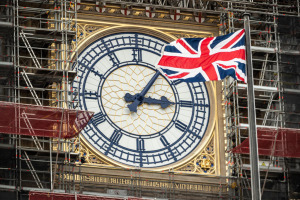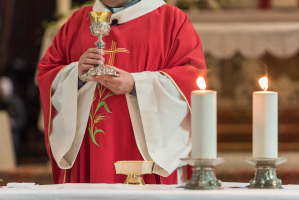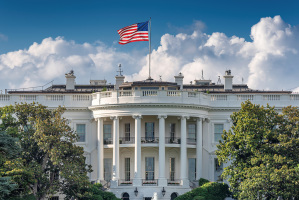Court Rules Against Wis. School District That Held Graduations in Church
An appeals court ruled against a Wisconsin school district over its usage of a church building to hold graduations due to a lack of space in public school facilities.
The full court of the Seventh Circuit Court of Appeals ruled Monday that by holding some graduations at a church full of religious imagery, Elmbrook School District was unlawfully endorsing a religion.
In a statement provided by Elmbrook Schools to The Christian Post, School District Superintendent Mark Hansen expressed disappointment with the decision.
"While we are disappointed with the majority opinion of the Seventh Circuit Court of Appeals, since 2010 the School District of Elmbrook has used its new field house at Brookfield East to accommodate graduation ceremonies for both high schools," said Hansen.
"Our primary focus as a district has always been to spend our time and resources on educating our students."
The Seventh Circuit's seven to three ruling reversed the September 2011 decision in which a three judge panel of the Seventh Circuit ruled two to one in favor of Elmbrook Schools.
Alliance Defending Freedom Senior Counsel David Cortman, who submitted a friend-of-the-court brief on behalf of Elmbrook, told The Christian Post about the difference between the two rulings.
"Both the original panel and the en banc panel agreed on the law that should be applied, but a majority of the en banc panel disagreed with the application of that law," said Cortman.
"The main difference ended up being the determination whether the mere presence of religious symbols (such as a cross and a bible) was impermissibly endorsing religion or in some manner coercive. The majority held that it crossed the line (no pun intended)."
According to Cortman, ADF and Elmbrook Schools are currently analyzing the decision and will likely attempt to appeal before the Supreme Court.
In 2009, a group of parents sued Elmbrook Schools because two high schools in the district were holding their graduation ceremonies at a local church. The parents were represented in court by Americans United for Separation of Church and State. U.S. District Judge Charles N. Clevert Jr. heard the case and ruled in favor of Elmbrook Schools. From there a three-judge panel of the Seventh Circuit ruled likewise in 2011.
Alex Luchenitser, associate legal director for Americans United, told The Christian Post that he was "very pleased" with the latest decision.
"No student or parent in the three states covered by the Seventh Circuit (Wisconsin, Indiana, and Illinois) will ever be forced to enter an intensely religious environment of a faith not their own in order to attend their high school graduation," said Luchenitser.
"Because yesterday's decision is the first decision by a federal court of appeals on this issue, we think it will have a broad impact all across the country, and discourage school districts around the country from holding their graduations in religious environments."
Elmbrook is not the only school system in the country to recently have a decision regarding whether or not public schools could hold graduations in church buildings. In a similar case in Connecticut, the Enfield School District agreed to a settlement with Americans United and the American Civil Liberties Union over their former use of First Cathedral Church for graduation ceremonies. According to the settlement, Enfield agreed to no longer hold graduation ceremonies at First Cathedral.
"Courts around the country are sending school districts a message that it is unconstitutional to hold public school graduations in religious environments," said Luchenitser.
"In 2005, a Florida district court also concluded that it is unconstitutional to hold public school graduations in a church underneath a cross. Thus, with yesterday's decision, a clear trend has emerged in the courts on this issue."
Cortman of ADF disagreed, telling CP that he felt "the area of the law is still in flux and the Supreme Court will have to settle this issue definitively."
"I think this sends a terrible message to future generations that merely having to view a religious symbol that you may disagree with creates a constitutional violation," said Cortman.
"This should be a lesson in accepting differences, or that we may have to view and hear things we may not agree with, but nonetheless 'tolerate' as the price of freedom."




























